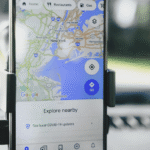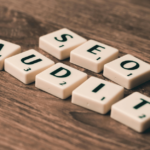The hospitality industry is more competitive than ever, with businesses constantly looking for ways to stand out online. Whether you run a hotel, restaurant, or event venue, your digital presence is key to attracting customers. Many business owners choose between SEO (Search Engine Optimization) and paid advertising to drive traffic and increase bookings. While both strategies have merits, understanding their differences can help you make a more informed decision. Investing in professional onsite SEO services for website optimization can improve long-term visibility, but does it outperform paid advertising?
The Long-Term Power of SEO
Website optimization (SEO) helps content achieve better positions in search results on platforms like Google. SEO involves multiple strategies, including keyword research, content marketing, backlink building, and technical improvements. It requires patience because it establishes enduring website traffic, while paid advertising produces immediate visibility.
Potential visitors who do not need to pay for every click can discover your hospitality establishment organically through search. A website optimized for search engines can compete for specific keywords, such as “best luxury hotel in Miami” and “top-rated Italian restaurant in Chicago,” to attract active users who search for these services. Implementing Google Business Profile optimization and customer review strategies can significantly enhance local search visibility because these methods specifically target businesses that receive most of their traffic from direct customers.
The main benefit of using SEO lies in its cost-efficient nature. Businesses need to invest in SEO experts or create high-quality content to start, yet they will benefit from sustained results. When managed correctly, SEO produces an enduring flow of traffic and conversions that continues after ad expenses stop, while paid advertisements fade when budgets deplete.
The Immediate Impact of Paid Ads
Google Ads and social media promotions are paid advertising methods that provide instant visibility and traffic. Hospitality organizations run focused promotional campaigns that position themselves at the top of search results and social media feeds to generate instant user clicks and reservations. Paid advertising works best for urgent promotions, including hotel deals during seasons and new restaurant openings, alongside special events that are limited in duration.
The main benefit of a paid advertisement is determining who views your content. Businesses enhance their conversion potential by focusing on particular audience segments, locations and interests, and previous website visitors. The time-consuming nature of SEO to develop authority does not exist in paid advertising since results become available at the campaign launch. Paid advertising visibility disappears completely when the campaign goes inactive.
Another drawback is cost. The hospitality industry’s competitive environment leads to higher paid advertising costs per click because businesses must maintain constant spending. A lack of proper optimization in paid advertising campaigns leads to business expenses that do not produce significant returns on investment. Repeated promotions might cause users to become unresponsive to advertisements, requiring businesses to maintain fresh creative approaches and advertising strategies.
What Offers the Most Effectively Used Investment?
Your hospitality business should choose between SEO and paid ads based on its objectives and financial resources. Paid advertisements are helpful for new startups or limited-time promotions and can help your company achieve quick traffic growth through marketing. However, SEO delivers superior long-term success alongside sustained visibility and represents a better investment option.
Both approaches should be integrated into a complete digital marketing strategy. A hotel typically uses paid advertising to promote its new package offers while spending resources on SEO to achieve higher placement in search engine results. Dining establishments often use paid advertisements to create event awareness, but they depend on restaurant SEO tactics to keep receiving natural search traffic.
The optimal approach to digital marketing success requires organizations to align their short-term and long-term marketing goals. Your hospitality business should use paid ads to supplement its ongoing SEO strategy to reach maximum visibility and improve profitability. Limited resources should direct your attention to SEO as your primary focus since it creates sustainable operations independently of paid advertising.
Conclusion
A hospitality business should integrate SEO with paid advertising to create its marketing strategy. SEO delivers lasting advantages, including consistent visitor traffic and affordable returns, while paid ads generate immediate audience visibility and specific audience engagement.
When hospitality businesses recognize the advantages and drawbacks of these methods, a strategic plan that optimizes investment returns emerges. Combining organic SEO growth with paid advertisements allows you to obtain instant visibility. At the same time, your well-planned strategy will help you attract and retain more customers despite digital market competition.





